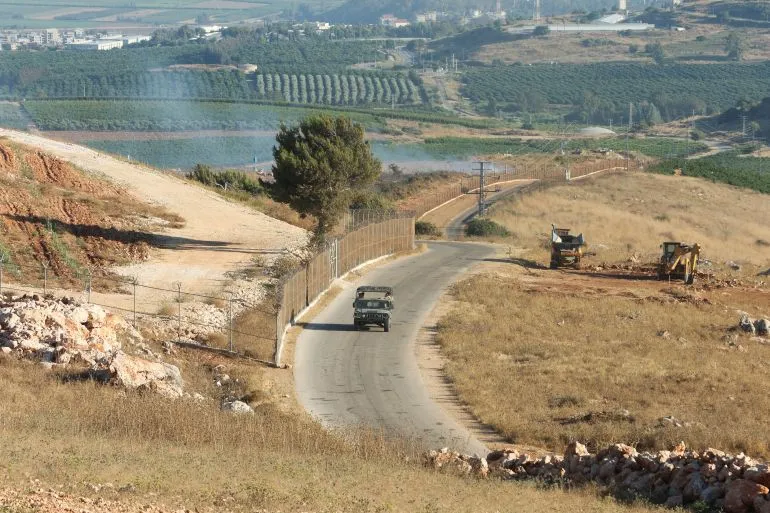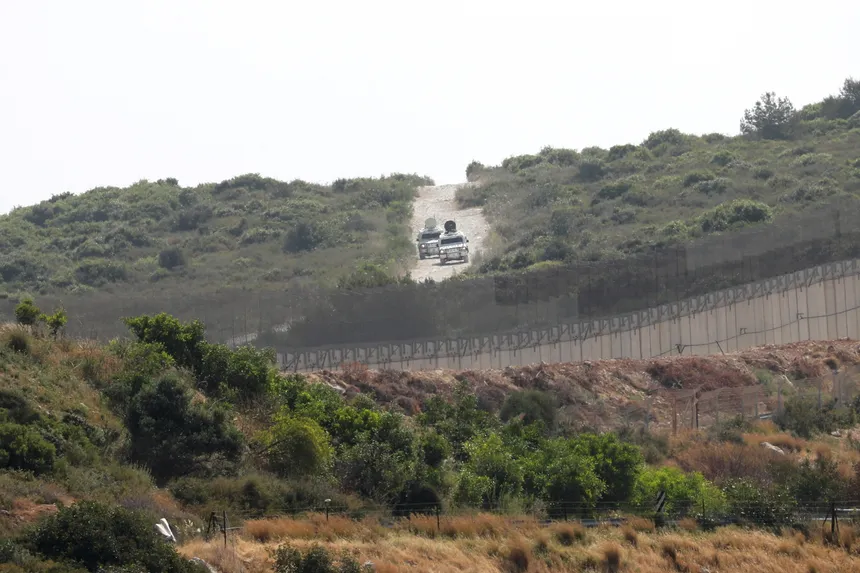The ongoing conflict between Israel and Hamas in Gaza has significant implications for the Lebanon-Israel border, where Hezbollah has been engaged in a low-level war with Israel for nine months. Hezbollah’s deputy leader, Sheikh Naim Kassem, has stated that the only path to a ceasefire on the Lebanon-Israel border is a full ceasefire in Gaza. According to Kassem, Hezbollah’s participation in the conflict has been as a “support front” for its ally, Hamas, and if the war in Gaza stops, Hezbollah’s military support will cease as well.
However, Kassem also warned that if Israel scales back its military operations without a formal ceasefire agreement and full withdrawal from Gaza, the implications for the Lebanon-Israel border conflict are less clear. He emphasized that if the situation in Gaza is a mix of ceasefire and no ceasefire, war and no war, Hezbollah cannot predict how it would react.
Recent weeks have seen an escalation of tensions on the Lebanon-Israel border, with near-daily strikes exchanged between the two sides. The conflict has displaced tens of thousands of people on both sides and has resulted in the deaths of 16 Israeli soldiers, 11 Israeli civilians, over 450 Lebanese fighters and civilians, and hundreds of Palestinian civilians in Gaza.
Internationally brokered ceasefire talks have repeatedly failed, with Hamas demanding an end to the war and not just a pause in fighting, while Israeli Prime Minister Benjamin Netanyahu has refused to make such a commitment until Israel achieves its goals of destroying Hamas’s military and governing capabilities and brings home the roughly 120 hostages still held by Hamas.

Lebanon’s Border Sees Uncertain Quiet.
Kassem also criticized US efforts to find a resolution to the war in Gaza, saying that the US has backed Israel’s plans to end Hamas’s presence in Gaza. He said that a constructive deal should aim to end the war, get Israel to withdraw from Gaza, and ensure the release of hostages, and added that once a ceasefire is reached, a political track can determine the arrangements inside Gaza and on the front with Lebanon.
Israel has reportedly approved plans for an offensive in Lebanon if no diplomatic solution is reached to the ongoing clashes, while some Israeli officials have said they are seeking a diplomatic solution to the standoff and hope to avoid war. However, Hezbollah is believed to be far more powerful than Hamas, with a vast arsenal of rockets and missiles capable of striking anywhere in Israel. Kassem warned that even if Israel intends to launch a limited operation in Lebanon that stops short of a full-scale war, Hezbollah’s response and resistance will not be limited to Israeli rules of engagement.
The conflict has regional implications, with armed groups in Iraq, Syria, Yemen, and elsewhere potentially entering the fray in the event of a full-scale war in Lebanon, which might also pull in Israel’s strongest ally, the United States. Diplomatic efforts continue to prevent a wider conflict, with US and European diplomats making a circuit between Lebanon and Israel in an attempt to ward off a wider conflict.
The situation on the Lebanon-Israel border remains uncertain, with the fate of the conflict hanging in the balance of a full ceasefire in Gaza. If the war in Gaza stops, Hezbollah’s military support will cease, but if Israel scales back its operations without a formal ceasefire, the implications for the Lebanon-Israel border conflict are less clear.











































